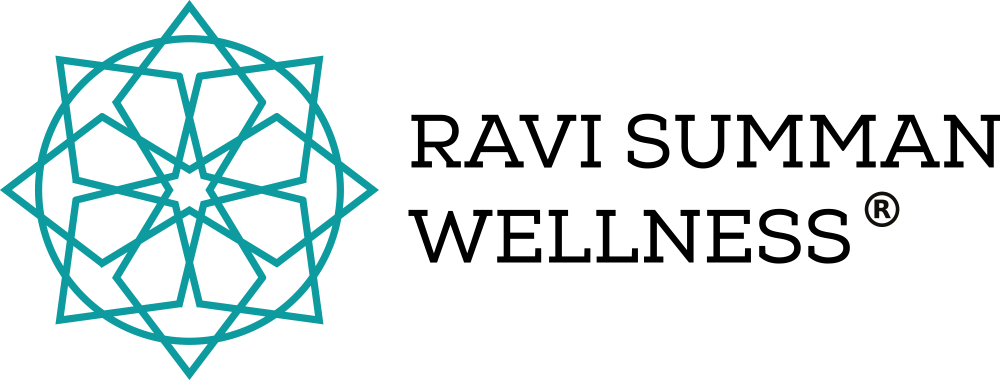The Importance of looking after your gut – Part 1
“Your gut feeling…”
“Trust your gut…”
These are not just phrases that reaffirm your belief in your decisions, but also highlight that our gut is at the core of everything we do.
Research and studies on nutrition and diet show that the focus of your gut and stomach on your health is extremely valuable. This is no surprise as when you visit a supermarket aisle, you constantly see food labels advertised as being ‘healthy’, ‘sugar free’ and so forth.
In 2015, the American Heart Association shared that having healthy bacteria in your gut is linked to higher blood levels of HDL (high-density lipoprotein, also known as ‘good’ cholesterol), triglycerides (fats found in your blood) and maintaining your weight. Gut bacteria is also known as the microbiome.
Studies into gut bacteria has led researchers to believe that healthy bacteria in the gut not only has an impact on gut health but also influences the immune system, reducing pain and inflammation, weight management and defending us from major diseases.
What is food intolerance and how can it affect you?
The term food intolerance refers to having an adverse or antibodies reaction to consuming a particular type of food. You probably know someone who is lactose intolerant and can’t drink milk as that can cause stomach cramps, bloating or diarrhoea. There are also intolerances to wheat and gluten which again causes bloating and cramps.
These pains and cramps are something we try to live with, just like anything, if the gut is constantly inflamed, we almost become numb to the problem and in the meantime the main organ which feeds the whole body and has to produce energy from the foods consumed to fuel the brain can be under constant and major stress.
The impact of hormones on gut health
Let us remind us of the role of hormones in the body which are relevant to gut health.
Testosterone and Oestrogen:
Testosterone is present in both men and women; this hormone plays a key part in the growth of muscle tissue. Testosterone is more dominant in men and oestrogen levels are higher in women. Testosterone contributes to the growth of the male body during puberty to adulthood and oestrogen also plays this role in the development of the female body.
These hormones require a correct balance for health during puberty and adulthood for both.
Increased levels of oestrogen in men leads to them developing gynaecomastia – this is when excess skin tissue grows on the male chest causing the chest to have a downward sloping look. From discussion with other practitioners in nutrition, some of them believe increased consumption of soya protein can make oestrogen levels rise in men.
Insulin:
It is important to have complex carb sources from low GI foods to stabilise blood sugar levels and manage the levels of insulin. Insulin is a hormone which regulates blood sugar and one of its tasks is to take sugar from the blood and transport to muscles so that sugar can be used as energy. Excess blood sugar can cause diabetes and of course excess bodyweight and a sedentary lifestyle can also contribute towards diabetes.
Cortisol:
Cortisol is the stress hormone. This can be stimulated from physical stress and mental stress too. It works with your brain to regulate your mood, motivation and fear. It is often thought of as the ‘fight or flight’ hormone in that guides your body’s instinct in the moment of crisis. High cortisol levels put your body under intense pressure, which why sleep and regulating stress levels can have a huge impact in how it affects your health.
Cortisol also contributes to managing your blood sugar (glucose) levels, blood pressure, playing a part in how your body utilises the macronutrients of carbohydrates, protein and fats and energy levels.
For more information on a tailored nutritional programme, get in touch with me and I’ll work with you to create a plan that is suited for you.
How can you tailor your diet if you have a food intolerance?
In July last year, I had the pleasure of interviewing Ricky Singh (Founder of Supply Life), and how his experience of irritable bowel syndrome (IBS) inspired him to help others with their food intolerance and gut health.
Ricky Singh has spoken of research where studies indicate consuming dairy leads to gut inflammation, and you may be asking: which non-dairy foods provide calcium?
These are some recommended high-calcium alternatives to milk:
· Broccoli and green vegetables, such as spinach
· Tofu
· Pulses
· Nuts
· Baked beans
Prebiotics and Probiotics continue to gain attention in the study of nutrition. It is believed foods which contain this provide healthy bacteria for the gut to aid digestion and absorption of the nutrients.
There are yoghurts and yoghurt-drinks on the market which are advertised as being good sources of this. Research suggests the foods which contain probiotics are live yogurts, cheeses and fermented foods such as kimchi. Studies also indicate prebiotics can be found in asparagus, flax seeds, root vegetables, oats, pulses and beans.
How do you test for food intolerance?
The mission of Supply Life is to help people live a better quality of life.
“All our testing is blood based, a small sample of blood is collected via our home sample collection kit, once the sample reaches the laboratory, the patient’s sample is diluted, then dispensed onto a microarray and tested against food extracts. Food IgG antibodies, if present bind to the food extracts then the system will scan to measure the antibodies” (Ricky Singh, Founder of Supply Life).
The extract below is based on my interview with Ricky Singh, Founder of Supply Life. This interview was broadcast in a two-part episode on Sikh Channel in the UK (on Sky Channel 768) and the video can be viewed from the Resources and News section of this website.
*Sikh Channel - Episode One: Interview With Ricky Singh
How did you get involved in the food intolerance testing?
Ricky Singh:
I was diagnosed with IBS after many years of digestive issues, coming from a Punjabi culture dairy and wheat was something we consumed every day and told this is good for us. Every day I suffered with bloating, stomach cramps, and felt drained after eating, and that’s before rushing to the bathroom. I understood that medication could help soothe things but doesn’t mean it will help solve the problem. So, I started with using the FODmap diet; this was helpful but very time consuming and found it didn’t pinpoint all the foods that were causing me issues. I was desperate to find answers, so I looked up allergy testing, which is a reaction caused by IgE (outside the body) and then I found IgG , which is our immune defence on the inside of the body, now you can see where I was going with this. The results were life changing for me, my days became easier, no more suffering and pushed me to enjoy food which was something I didn’t enjoy due to I knew I would get an upset stomach.
Working together with a UK laboratory we designed a home blood sample collection kit, because I know there are a lot people that are suffering and could end up having long term issues in due time.
My passion is to help people that have suffered like myself, I want them to experience all the benefits that I have, want them to live a quality of life that they deserve and educate people the links between food, health and disease.
How and why do we have food intolerance?
Ricky Singh:
So, there are many causes for having food intolerances, each human body is different. Food, environment, stress in our gut, all these are usually caused by processed foods, medication, vaccines, and sugars. All the above impact your immune system, the microbiome becomes sensitive. Small amount of food particles enter the bloodstream via the digestive system, the proteins from the food particles get recognised as foreign and triggers your blood to produce IgG antibodies to the foods recognised as foreign. The IgG is the immune systems defence mechanism to defend the body and push off the foreign invaders which can create inflammation.
Constant gut inflammation can lead to many symptoms: imagine if we were to stop brushing our teeth, and continue to consume foods and drink, over a period of time you will build up plaque which leads to gum disease, bad breath, teeth decay and the rest you can imagine.
How important is fibre to ensure optimum health of our stomach?
Ricky Singh:
Fibre is very important for our digestive system as this helps the processing taking place, if you look at grains and vegetables which are insoluble, and where are fruits like apples, which we call soluble. Both are important. The mixed balanced of both have many health benefits, the instant ones are bowel movement and long term it has been known to reduce cardiovascular disease and minimised gut inflammation which leads to chronic diseases.
From the customers you have helped, what is the link between those who are vegetarian and non - vegetarian to digestion problems?
Ricky Singh:
It’s difficult to compare the two as every individual is so different, this starts off from birth, if they were nursed or bottle fed, were they vaccinated, what their diet consisted over the years? Both diets still have dairy and grains so they would both suffer with some sort of gut inflammation
How effective is prebiotics and probiotics in helping to develop healthy bacteria in the stomach?
Ricky Singh:
It is very important to putting good bacteria in the gut, the common probiotic that people use is from yogurts, now if you are dairy intolerant which is very highly unlikely your gut will not obtain all the benefits, which is why I recommend using a probiotic in a tablet formula, which doesn’t contain wheat, corn, or barley to get best results.
Having said this, you will need to support the probiotic and the existing good bacteria in the gut by consuming a wide range of vegetables, which are prebiotics. The good bacteria and the probiotic helps promote gut health, boost immune system and feed off the prebiotics (vegetables).
With foods from Asia (especially India), what are their impact on helping with healthy digestion?
Ricky Singh:
I wish we could still get the same quality of food which we used to get in Punjab, North India – vegetables full of flavour. It actually goes off within days if it is not consumed within days whereas over here most foods from supermarkets can go a very long time which always make me question the modification on the plant/root.
With Punjabi cooking we use garlic, onions, haldi (turmeric), ginger every day, these make great prebiotics, and haldi has a long list of benefits. On the other hand with wheat no longer being the same quality, and genetically modified this is causing more of a problem as it contains more gluten than before. This is now causing bloating issues whereas 50-60 years ago grains were great for us and promoted good health.
It is all very well saying that healthy bacteria is good for the gut, but how can it actually support in preventing diseases and/or dealing with the side effects of diseases?
My conversation with Ricky continues here. [link to part 2]
Share this post





